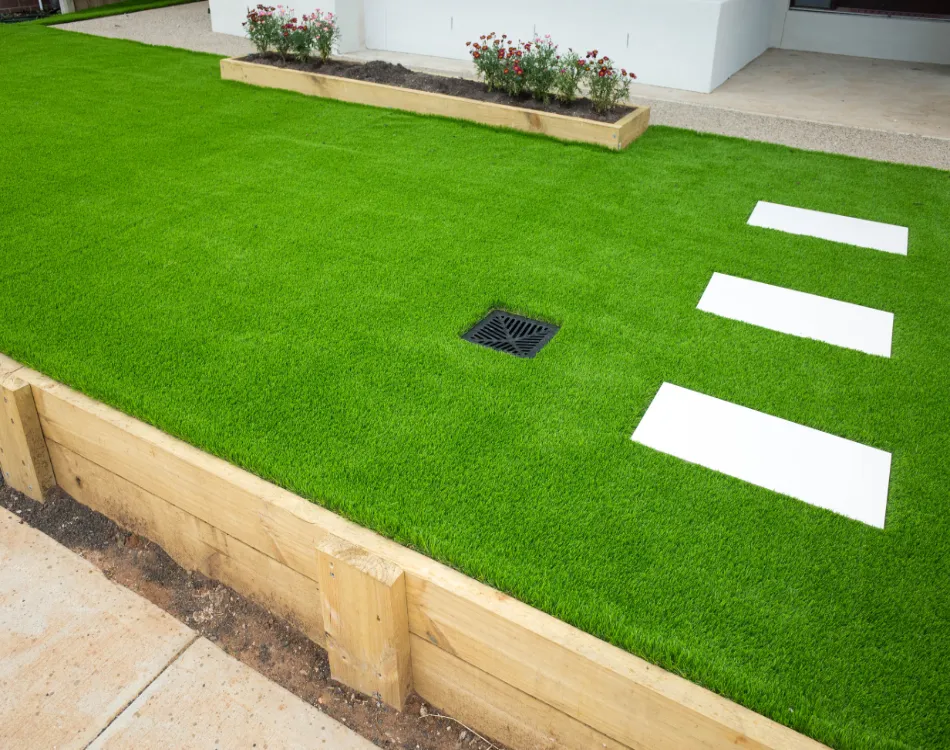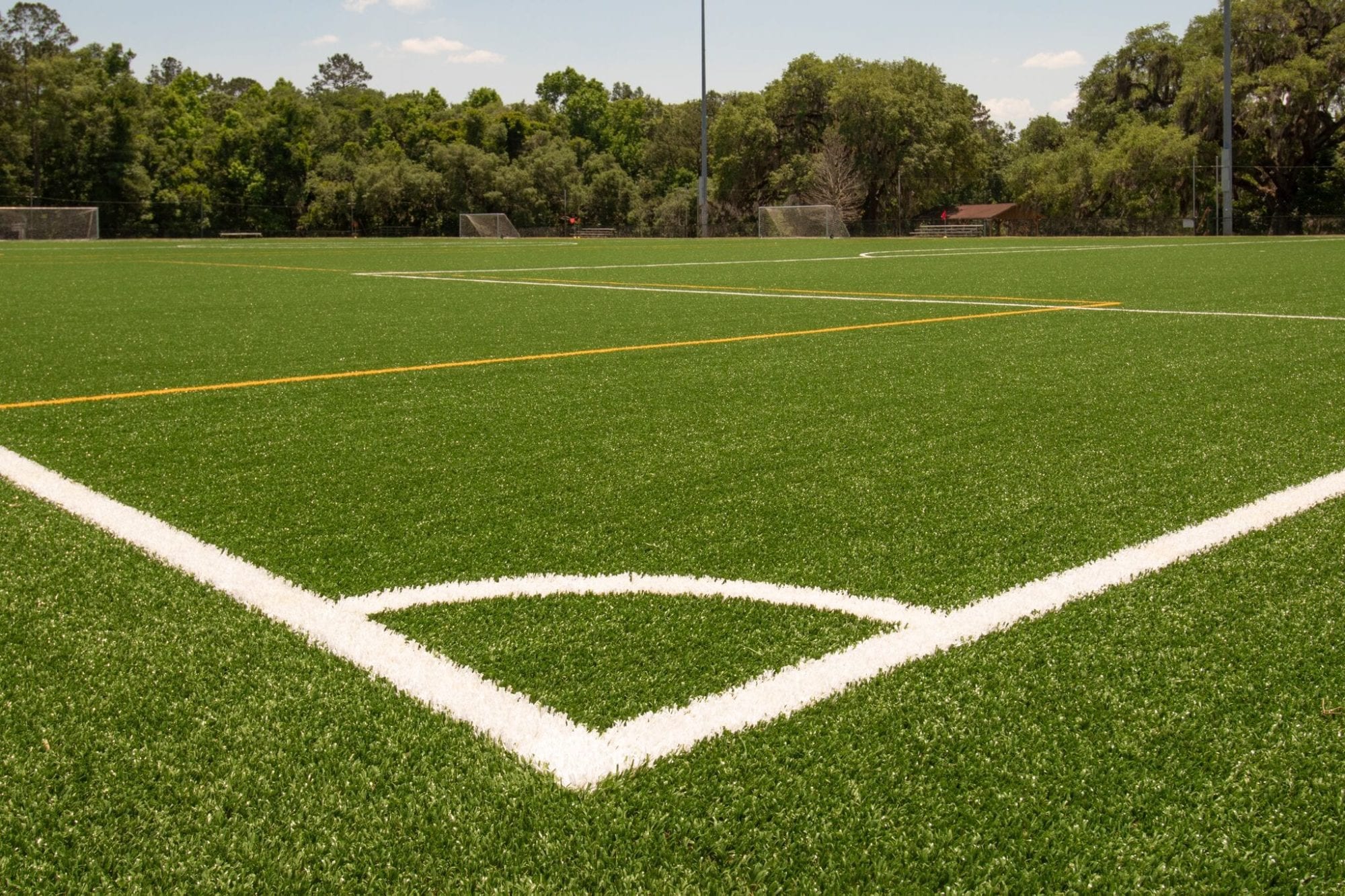Expert Arizona Turf Installation Services for Residential and Commercial Use
Expert Arizona Turf Installation Services for Residential and Commercial Use
Blog Article
Look Into the Environmental Perks of Opting for Synthetic Grass Solutions
The adoption of fabricated lawn solutions offers an engaging chance to deal with pressing ecological difficulties. By substantially minimizing water use and reducing the application of dangerous chemicals, these options not only advertise lasting landscaping but additionally safeguard neighborhood ecological communities. Moreover, the lower carbon impact related to decreased maintenance tasks adds to an extra sustainable method to land management. The ramifications of these advantages expand beyond plain conservation efforts, raising questions regarding their lasting influence on habitat conservation and general eco-friendly balance. Exploring these dimensions discloses a complex interplay worth taking into consideration.
Water Preservation Benefits
Among the most significant advantages of man-made turf is its capability to save water. Traditional grass lawns require considerable watering, especially in areas susceptible to drought or water constraints. On the other hand, synthetic grass does not require watering, dramatically reducing the overall demand for water resources. This feature is especially valuable in arid regions where water shortage is a pushing worry.
By getting rid of the demand for normal watering, fabricated turf adds to sustainable landscape methods and helps reduce the environmental effect of excessive water consumption. Moreover, the conservation of water extends to the reduction of overflow, which can result in soil disintegration and river pollution.
In addition, the setup of artificial lawn permits towns and home owners to allocate water sources much more effectively, focusing on crucial uses such as alcohol consumption water and agriculture. The shift in the direction of artificial lawn not just promotes responsible water usage however likewise aligns with more comprehensive environmental goals focused on maintaining natural deposits.
As communities significantly prioritize sustainability, the water conservation benefits of man-made grass offer an engaging case for its adoption in business and household landscape design tasks.
Reduced Chemical Usage
The change to man-made turf substantially lowers the reliance on chemical therapies frequently utilized in natural yard upkeep. Traditional lawn management commonly includes the application of herbicides, pesticides, and fertilizers to promote development and control parasites. These chemicals can present risks to human health, neighborhood wild animals, and the environment, adding to dirt and water contamination.
In contrast, fabricated lawn eliminates the requirement for these harmful materials. By reducing the launch of synthetic substances into the ecosystem, synthetic lawn promotes much healthier soil and water systems.
Moreover, the absence of chemical runoff related to synthetic grass setups assists protect regional waterways from pollution, sustaining water life and maintaining biodiversity. Phoenix turf companies. As communities significantly focus on sustainable practices, going with synthetic grass offers a practical solution that aligns with environmental preservation goals. Via this shift, building proprietors can take pleasure in rich eco-friendly rooms without endangering eco-friendly health, leading the way for a much more sustainable future
Lower Carbon Footprint

In addition, the installment of synthetic grass can cause substantial water preservation. Natural grass need significant amounts of water for watering, which not just includes in the carbon impact related to water removal and therapy however also pressures local water resources. In comparison, synthetic grass requires very little maintenance, calling for no watering, thereby significantly decreasing water usage and its linked energy costs.
In addition, the durability of synthetic grass contributes to its decreased carbon effect. With a lifespan of as much as 15 years or even more, the demand for constant replacements is lessened, leading to less waste and lower energy consumption in manufacturing and disposing of conventional turf alternatives. On the whole, synthetic grass provides a lasting choice for eco aware landscape design.
Environment Preservation
Habitat preservation is an important consideration in the discussion over landscape design options, specifically when contrasting synthetic grass to all-natural grass. Natural yard yards frequently require extensive maintenance, including making use of chemicals, plant foods, and herbicides, which can adversely affect neighborhood ecosystems. These chemicals can seep right into the soil and waterways, hurting indigenous vegetation and animals and interfering with regional environments.
In contrast, synthetic grass offers a possibility to lower the ecological footprint of landscaping. Going Here By deciding for artificial turf, house owners can minimize the disturbance of all-natural habitats connected with traditional yard treatment practices. Synthetic grass gets rid of the demand for unsafe chemicals, thus protecting neighboring wild animals and preserving the integrity of surrounding ecosystems. The installation of synthetic lawn can lead to the conversion of former grass areas into more biodiverse landscapes, such as pollinator yards or indigenous plant areas, which can sustain local wildlife.
Inevitably, the transition to synthetic grass not just conserves water and reduces maintenance initiatives yet likewise cultivates a much more unified connection between human activities and the natural setting, advertising environment conservation in the procedure.
Long-Term Sustainability
Long-lasting sustainability is an essential consider assessing the benefits of artificial turf over standard turf yards. Among the most significant advantages of synthetic grass is its toughness; it can last as much as 15-20 years with minimal upkeep, whereas all-natural grass needs frequent reseeding and substitute. This durability reduces the need for consistent sources, such as water, fertilizers, and pesticides, which are important for preserving a healthy and balanced turf yard.
Additionally, synthetic grass adds to a reduction in carbon emissions related to yard care equipment. Typical lawns often call for gas-powered mowers, leaners, and blowers, every one of which add to air contamination. Artificial turf companies phoenix. In contrast, artificial grass eliminates the demand for such tools, advertising a cleaner setting
Furthermore, the production of synthetic grass progressively uses recycled products, boosting its sustainability account. As makers take on environmentally friendly practices, the environmental impact of synthetic grass remains to reduce.

Verdict
The fostering of synthetic grass remedies offers considerable ecological advantages, including substantial water conservation, reduced dependence on hazardous chemicals, and a reduced carbon footprint. In addition, artificial grass aids in maintaining natural discover this environments by minimizing land disturbance and promoting long-lasting sustainability via making use of resilient materials. Jointly, these factors underscore the capacity of synthetic grass to add favorably to environmental health and provide a viable choice to standard landscape design practices in a progressively resource-conscious globe.
In comparison, man-made grass does not need watering, significantly minimizing the overall demand for water sources. By minimizing the launch of artificial compounds right into the ecological community, artificial turf advertises much healthier dirt and water systems.
In addition, the installment of man-made lawn can result in considerable water continue reading this preservation. In comparison, fabricated lawn requires minimal maintenance, needing no watering, thus significantly decreasing water usage and its connected power expenses.

Report this page